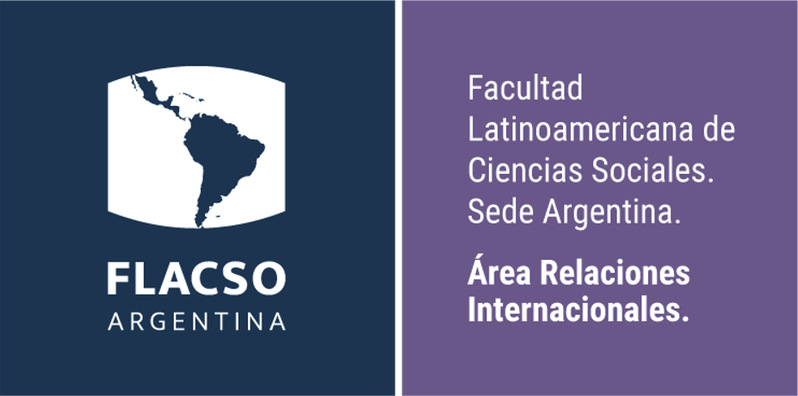
FLACSO is a regional intergovernmental academic organisation created in 1957 by UNESCO, presently headquartered in Costa Rica and with campuses in Argentina, Bolivia, Brazil, Costa Rica, Cuba, Chile, Ecuador, Honduras, Guatemala, Mexico, Nicaragua, Panama, Paraguay, Dominican Republic, Suriname, and Uruguay. From the beginning, a core goal has been establishing postgraduate programs to train successive cohorts of Latin Americans in the social sciences.
Established in 1974, the campus at FLACSO Argentina has been committed to building democratic political systems and societies sustainability. This objective has nurtured its postgraduate programs, which stand out for their regional perspective and the integration of various disciplines in face-to-face seminars. The Master's program in International Relations started its activities in 1985 and has formed generations of scholars and professionals in International Relations with outstanding profiles in the country and abroad. The Department is currently under the direction of Dr Diana Tussie. It includes a multidisciplinary group of academic researchers who are also fellows of Argentina's National Council for Scientific and Technical Research (CONICET).
Founding member of the World International Studies Committee, the Department of International Relations offers an integrative perspective based on multidisciplinary approaches that make up the broad spectrum of topics that constitute the field of IR. Our teaching addresses international economic relations, international institutions and organisations, regional integration models, transnational social movements, studies on globalisation, foreign policy, sustainable development, and comparative politics. Likewise, the Department has provided policy relevant research for the formulation of public policies on international issues. The results of the research carried out are disseminated through books, academic articles, working documents, blogs and newsletters published on our website, and active participation in conferences and seminars. The Department also hosted several international projects and headed Latin America's participation in the European Commission's FP7 and H2020 initiatives in association with European universities. FLACSO Argentina holds the WTO Chair and the Science and Technology Regional Chair in Latin America, part of UNESCO's UNITWIN Program.
Based on the objective of providing an integrative perspective, the Department has also been carrying out research, teaching, and public debate to open up a comprehensive understanding of China as a global power. In 2019, we inaugurated the Chair on China Studies, currently coordinated by Dr Juliana Gonzalez Jauregui. The Chair has sought to bring together professors, researchers, policymakers, and our alumni together with other postgraduate students. We have established contacts and promoted both educational and research collaboration with peers in Chinese academic institutions, think tanks, and universities, but also with colleagues working on China in other institutions and regional hubs. Additionally, to boost that exchange, members of our department travel annually to China to participate in conferences and training courses. In the context of the COVID-19 pandemic, these interactions have been virtual.
The Chair aims to bring integral approach to China-Latin American relations. Thus, within the master's degree in International Relations each semester we open two training seminars. The first one analyzes China's domestic and global strategy. The second complements and expands the analysis of the former, focusing on global, regional, and national implications of China's global strategy, interpreting its relations with Africa, Asia, Europe, North America, and Oceania. This second seminar plays special emphasis on China's relations with Latin America. The Chair also aims to promote research and specific study of China through other activities and proposals such as academic conferences, publications, and participation in international conferences like those organized by the International Studies Association, LASA / Asia, the Shanghai Forum, and the World International Studies Committee, among others.